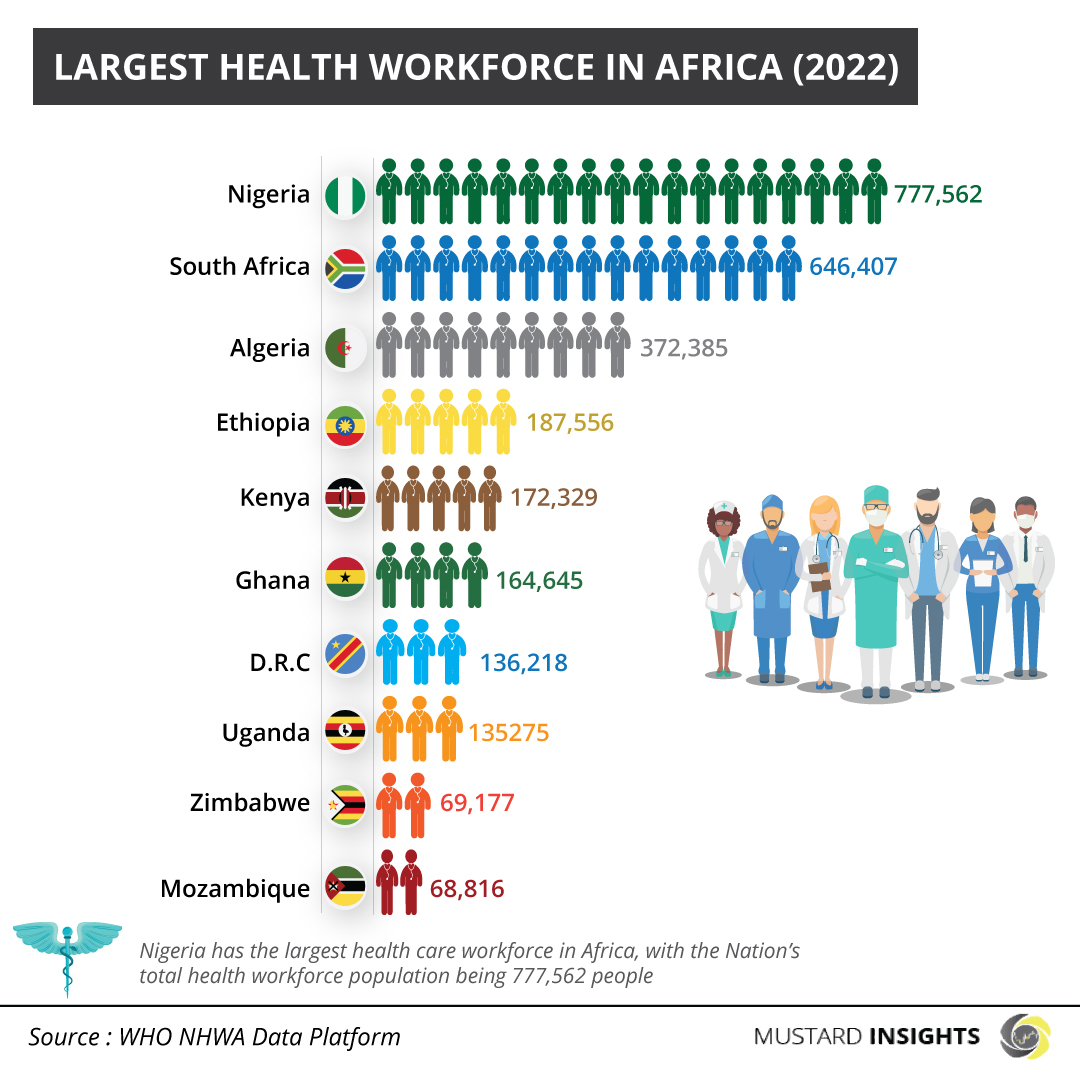Nigeria’s health industry has received recognition as having the highest total health workforce population in Africa ahead of South Africa and Ghana. Nigeria has the largest healthcare workforce in Africa, with a total health workforce population of about 777,562. South Africa and Algeria have the second and third largest healthcare workforces in Africa, with total health workforce populations of about 646,407 and 372,385 people, respectively.

Nigeria’s health industry has received recognition as having the highest total health workforce population in Africa ahead of South Africa and Ghana.
Professional healthcare workers play a critical role in improving access to and quality health care of the population. They provide essential services that promote health, prevent diseases and deliver health care services to individuals, families and communities.
Health workers are the critical pathway to attaining the health target in Sustainable Development Goal (SDG) 3, which seeks to ensure health and well-being for all, at every stage of life. Also, it aims to achieve universal health coverage and provide access to safe and effective medicines and vaccines for all.
Breakdown & Key Metrics
According to the World Health Organisation (WHO) and National Health Workforce Accounts (NHWA), data compiled for the health workforce in Africa’s health industry in 2022 shows Nigeria, Africa’s most populous country, has the highest health workforce in Africa. In the report, Nigeria has a total health workforce population of 777,562.
South Africa and Algeria have the second and third largest healthcare workforce in Africa, with total health workforce populations of 646,407 and 372,385 people, respectively.
The report by the WHO and NHWA ranks Ethiopia in fourth with a total health workforce of 187,556 and Kenya in fifth with a total health workforce of 172, 329 people. Ghana is sixth on the list with a total health population of 164, 645 people and the Democratic Republic of Congo (DRC) with 136, 218 people is seventh on the list. Uganda, not for off from the DRC with a total health population of 135,275, occupies an eighth position on the list and completes the top eight countries with a total health population of over 100 thousand.
Zimbabwe and Mozambique complete the top 10 African countries with the largest health workforce in Africa in 2020 with 69, 177 people and 68,816 people, respectively.
Takeaway
A skilled workforce is the backbone of every health system, yet the World Health Organization (WHO) estimates there is a shortage of 17 million health workers globally. Africa’s health workforce accounts for 4% of the world’s total health workforce and feels the shortage of health workers because its population suffers 24% of global disease.
With the shortage expected to worsen over the next 10 years, an increasing population and technological advancement in the health sector combined with effective plans to train more health workers may act to keep it under control.
Thoughts?
We won't share your email address. All fields are required.
